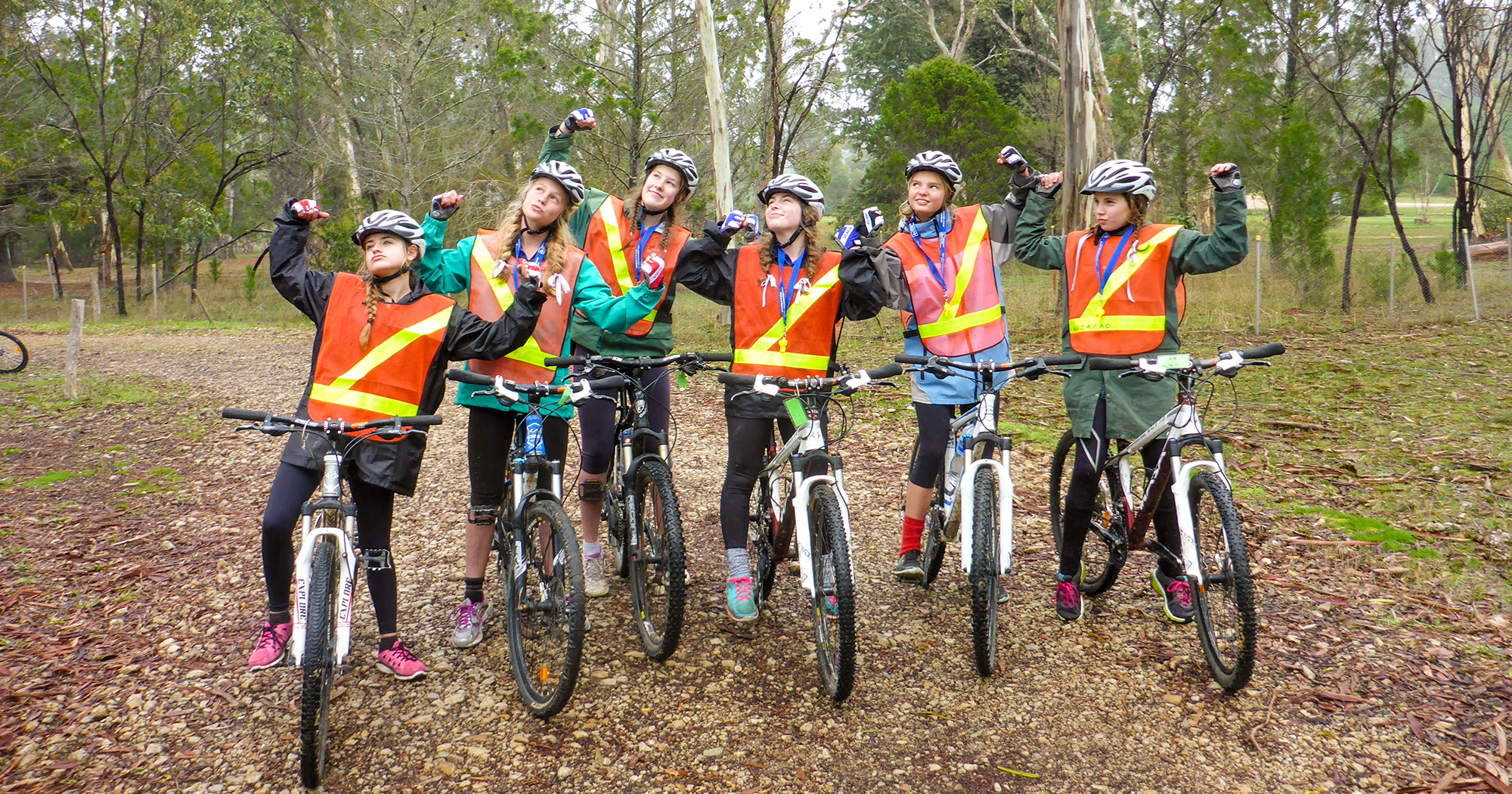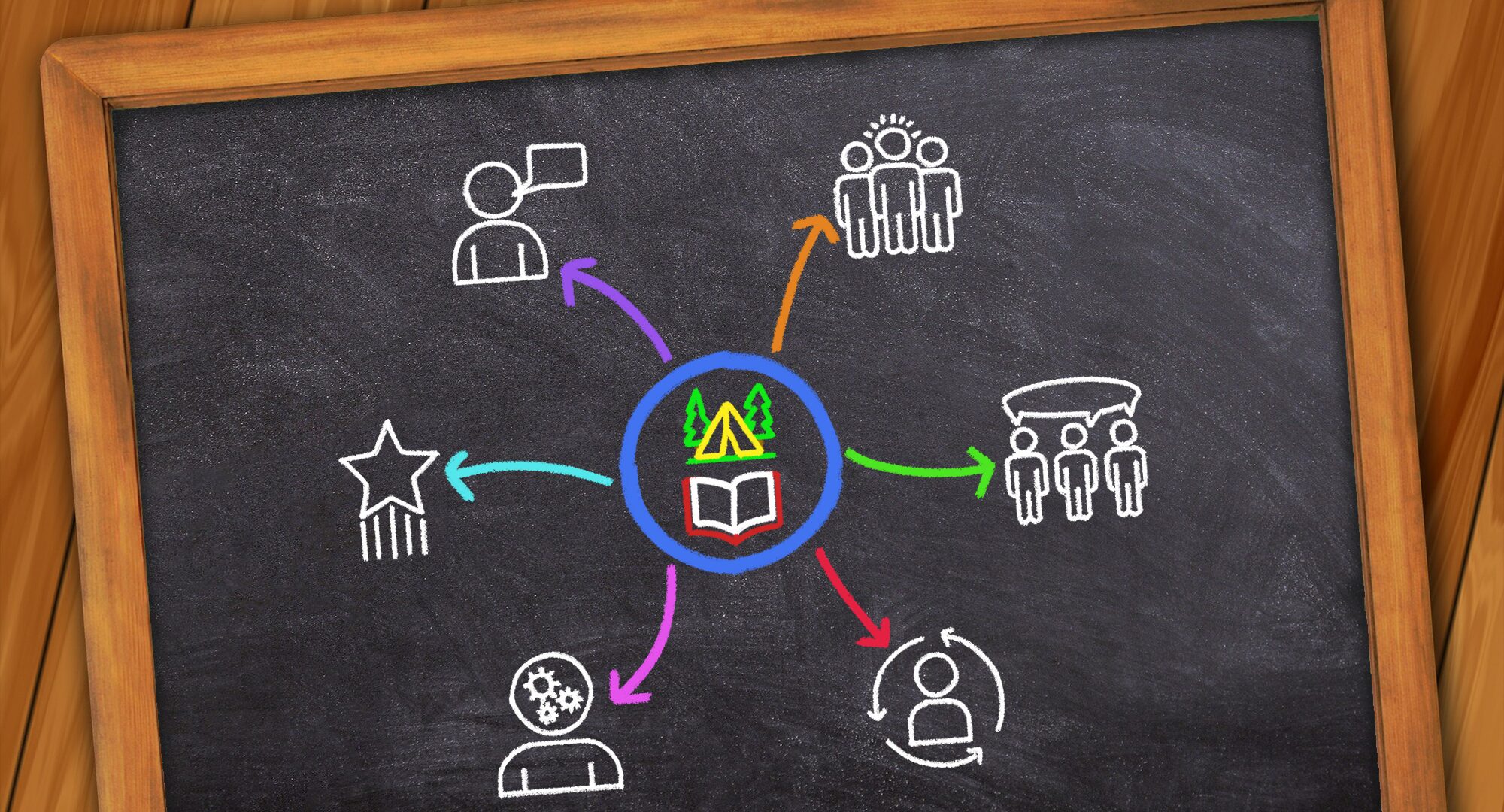Outdoor learning experiences, commonly referred to in school environments as Outdoor Education, are becoming of greater focus within the educational curriculum. What once was considered a novel form of entertainment in the outdoors to break up the seriousness of the school year has quickly become an important factor within educational success.
These days quality Outdoor Educators are expected to be able to create custom outdoor experiences that follow yearly curriculum structures with the positive outcomes the experiences provide showing long-term benefits to students and faculty alike. The positive impacts Outdoor Education has on the classroom are wide ranging. Four of the most well documented ones include –
1. Increased capability for self-evaluation, self confidence and ability to tackle real world scenarios.
Outdoor Education naturally lends itself to addressing core components of the Australian Curriculum (in particular HPE and Humanities and Sciences) but also teaches a huge range of life skills. Tasks that require students to step outside of established routines, with easily definable goals and successes promote a sense of accomplishment. Through the use of task-orientated independently-led journeys and the development of new outdoor skills students are able to successfully conquer objectives that they may have felt above their own abilities.
Not only do these successes have positive effects on student self-confidence, but they encourage a change in perspective on what students themselves think they are capable of, and their ability to adapt to new or challenging situations. Back in the classroom this can encourage students to tackle assignments that appeared too challenging previously, or to rethink their approach to find new successful ways of managing their school work requirements
2. Development of interpersonal relationships, leadership capabilities and abilities to work together to accomplish goals.
Through the use of common goals, active participation and personal development, students gain a better understanding of how to interact with those around them, both learning and understanding strengths and limitations in themselves and others, and how best to work together to achieve goals that are mutually beneficial.
Outdoor Education utilises group tasks such as rock climbing, high ropes courses and other adventure activities to foster this sense of team building and mindfulness with positive and achievable goals to highlight the benefits of cooperation and community structure. These habits can naturally be transferred back into their real-world class scenarios, allowing for better group cohesion and understanding on how to play to each other’s strengths to achieve project goals.
3. Positive influence on interactions within the classroom.
One of the most common examples provided by teachers themselves both during and after trips is an increase in both positive interactions and ease of interaction between students and staff. Working together during Outdoor Education experiences to achieve goals allows students and teachers to develop common ground, rooted on their shared experience and successful accomplishment of tasks.
Additionally, for students that have trouble communicating or expressing themselves positively, the increased self-confidence, awareness and positive behaviour enforcement they get during their trips allows them to redirect their approach to social interactions with their teachers, promoting a more successful relationship.
4. Diminishes the perception of underachievement perceived in the classroom.
The ability to engage in child-initiated activities, with focuses on individual development in outdoor settings allows children who have previously appeared to be ‘under achievers’ in the classroom to develop and behave differently in an environment better suited to their innate skills.
Studies have shown that immediate differences in behaviour and achievements are seen and can often be applied or encouraged once the child returns to the classroom. Changes in self confidence and self-perceived ability to succeed achieved through accomplishments during trips can positively influence their outlook and enthusiasm towards continuing education.

Wilderness Escape Outdoor Education Programs
Wilderness Escape has been running Outdoor Education programs for 30 years and is one of SA’s largest and most respected outdoor companies. We run both school camps and day programs for schools with a focus on experiences that allow students to develop increased positive emotion through their achievements. The scope and sequence of experiential learning techniques we use during our programs allows students to develop self-sufficient skill level that ultimately gives them the ability to make knowledgeable choices about the outdoor experiences and their real-life counterpoints they take on.
Wilderness Escape operates throughout South Australia and Victoria and provides a wide range of outdoor activities led by highly qualified instructors.
Reference
Barret, J. and Greenaway, R (1995) Why Adventure? The role of outdoor adventure in young people’s personal and social development, Foundation for Outdoor Adventure, Coventry, England
Cason, D. and Gillis, H.L (1994) A meta-analysis of outdoor adventure programming with adolescents, Journal of Experiential Education 17(1): 40-47
Duncan, L (2021) Personal Correspondence – Outdoor Educator, Wilderness Escape Outdoor Adventures, Glynde, South Australia
Hattie, J.A., Marsh, H.W., Neill, J.T. and Richards, E (1997) Adventure education and Outward Bound: Out-of-class experiences that have a lasting effect, Review of Education Research 67:43-87
Lieberman,. G.A. and Hoody, L.L (1998) Closing the achievement gap. Using the environment as an integrating context for learning, State Education and Environment Roundtable, San Diego, California
Maynard, T., Waters, J. and Clement (2013) Child-initiated learning, the outdoor environment and the ‘underachieving’ child, Early Years 33(3) 212-225
Neill, J.T. and Richards, G.E (1998) Does Outdoor Education really work? A summary of recent meta-analyses, Journal of Outdoor and Environmental Education 3:2-9
Outdoor Education Australia (2021) Understanding Outdoor Education – https://outdooreducationaustralia.org.au/education/
Priest, S (1986) Redefining Outdoor Education: A Matter of Many Relationships, The Journal of Environmental Education, 17(3): 13-15
Wattchow, B. and Brown, M (2011) A Pedagogy of Place. Outdoor Education for a Changing World, Monash University Publishing, Victoria

